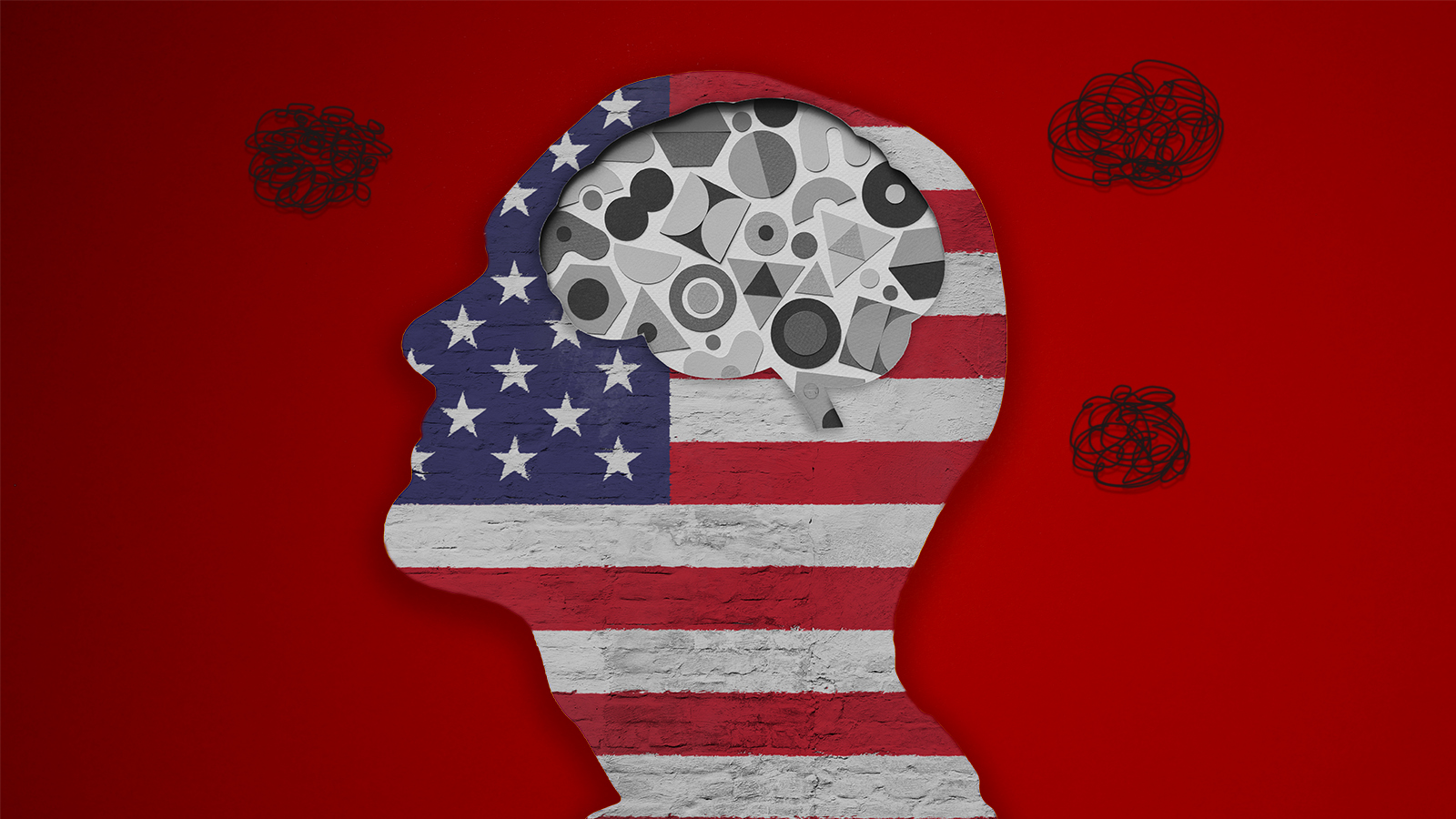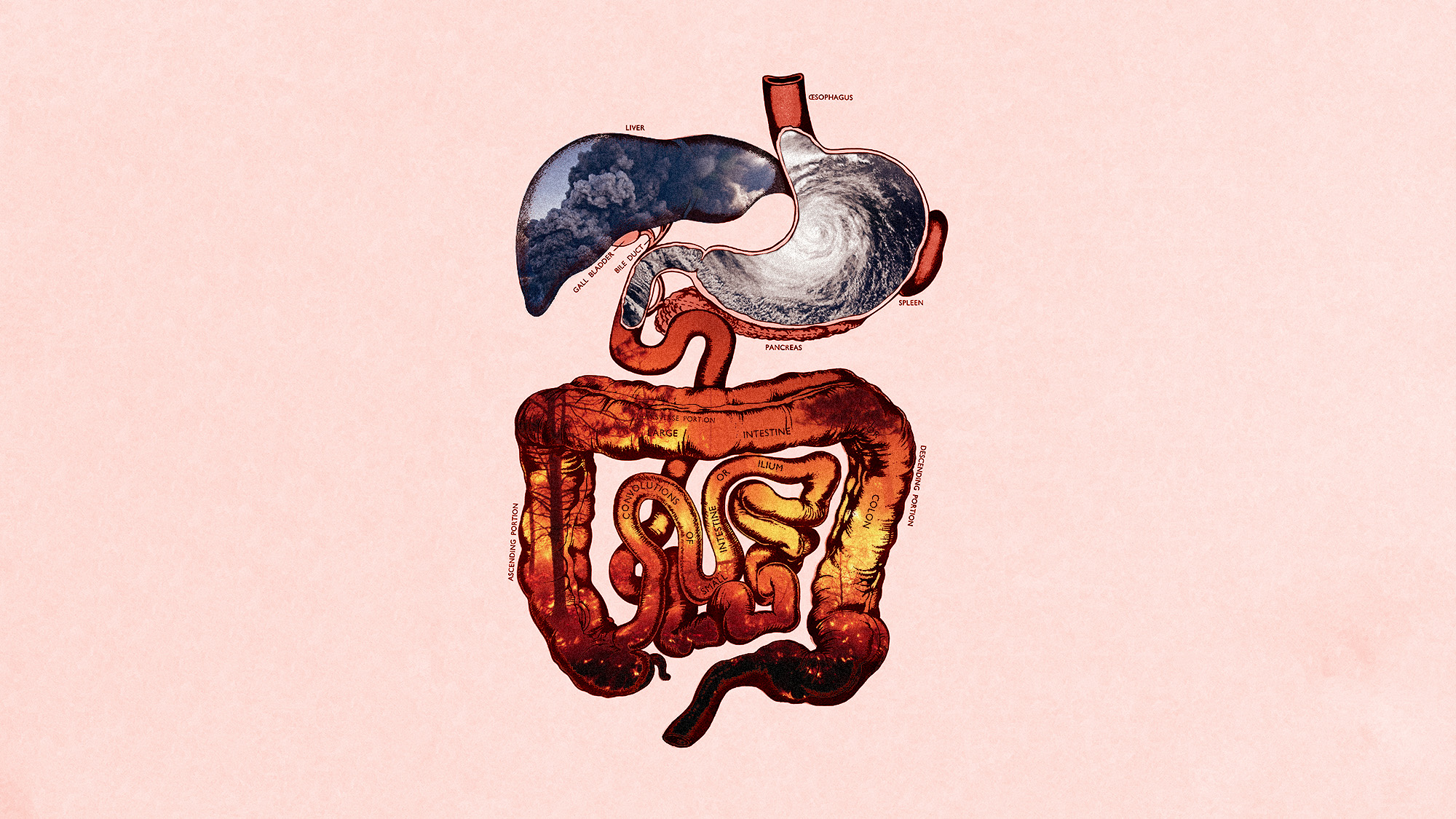How cities and states are confronting the mental health crisis
Is involuntarily hospitalizing people with mental illness a city's 'moral obligation'?


A free daily email with the biggest news stories of the day – and the best features from TheWeek.com
You are now subscribed
Your newsletter sign-up was successful
Recent data indicates that Americans are facing a mental health crisis, putting a strain on health-care systems that are already struggling to provide adequate resources. Some leaders are turning to involuntary hospitalization as a means of mitigating the problem, but many mental health advocates question whether that is an acceptable response.
Here's everything you need to know about how some states and cities are responding to America's mental health crisis:
Is America facing a mental health crisis?
Concerns about mental health in the U.S. spiked during the pandemic, but three years in, experts say there is still cause for alarm. In a statement accompanying their latest State of Mental Health in America report, nonprofit Mental Health America (MHA) called their findings "worrying." Based on data collected from across the nation through 2020, over 12 million adults, or 4.84 percent of the population, reported having serious thoughts of suicide. Sixteen percent of children and teens reported experiencing at least one major depressive episode, and 93.5 percent of the 15 percent of adults with a substance use disorder went untreated.
The Week
Escape your echo chamber. Get the facts behind the news, plus analysis from multiple perspectives.

Sign up for The Week's Free Newsletters
From our morning news briefing to a weekly Good News Newsletter, get the best of The Week delivered directly to your inbox.
From our morning news briefing to a weekly Good News Newsletter, get the best of The Week delivered directly to your inbox.
"This year, again, the evidence is clear regarding the urgent crisis we face in American mental health. From high numbers of our youth who are contemplating suicide to an increase in substance use, to widespread difficulty in accessing the care they seek, Americans are experiencing high rates of distress and frequent challenges in getting help," said Schroeder Stribling, president and CEO of MHA.
MHA reports that nearly 55 percent of over 50 million people experiencing a mental illness did not receive treatment, citing accessibility and high costs as the main reasons.
Therapists and mental health professionals are struggling to keep up with the increasing need for treatment. A recent American Psychological Association (APA) report showed that nearly half of the 2,300 psychologists surveyed struggled to meet the treatment demand. Sixty percent reported having no room for new patients in their schedule. Burnout among mental health professionals is also rising, with many psychologists seeking peer counseling to cope.
The psychologists reported that the steady increase of diagnoses of "trauma, obsessive-compulsive, substance-related, and cognitive disorders" has put a strain on the mental health care system, per Axios. Over a quarter of the psychologists in the APA survey reported more patients with persistent severe mental illness.
A free daily email with the biggest news stories of the day – and the best features from TheWeek.com
American citizens are also expressing concern over the ongoing crisis. An October survey conducted by CNN and the Kaiser Family Foundation revealed that 90 percent of U.S. adults believe the country is in the midst of a mental health crisis. Nearly half of the adults surveyed said they have a family member facing severe mental health issues.
How are state and federal lawmakers addressing the crisis?
The increase in mental health needs over the past few years has spurred many lawmakers to find a way to mitigate the crisis. President Biden announced his commitment to supporting states to find resources for mental health care in his first State of the Union address. In October, he announced that $315 million would be available for states to fund the expansion of Certified Community Behavioral Health Clinics.
In July, a new national suicide hotline was launched following the passing of the National Suicide Hotline Designation Act in 2020. The act designated 988 as a universal phone number for people who are suicidal or in emotional distress. The increase in calls and lower wait times since shortening the hotline number indicates that it was a successful move from its 10-digit predecessor.
On a more local level, some state lawmakers have turned to involuntary commitment as a means of tackling the ongoing crisis. The U.S Health and Human Services defines involuntary or civil commitment as the "legal process by which a person is confined in a psychiatric hospital because of a treatable mental disorder, against his or her wishes." Many states have laws in place that allow for involuntary outpatient treatment.
New York City Mayor Eric Adams (D) recently directed first responders to resort to involuntarily hospitalizing mentally ill people, even in cases where they are not a threat to others. Adams argued the city had a "moral obligation" to help the large population of mentally ill homeless people on the streets and subways. His directive includes efforts to increase the use of Kendra's Law, which allows courts to mandate outpatient treatment for those who threaten themselves or others.
Other local governments are relying on similar measures to address mental health issues in their communities. California Gov. Gavin Newsom (D) recently signed a law that could force treatment on homeless people suffering from disorders like schizophrenia. The Justice Department launched an investigation in Oklahoma to determine if the state, Oklahoma City, and the city's police force are discriminating against people with mental health abilities; the inquiry will examine if the state is violating laws, like the Americans with Disabilities Act (ADA), by relying on psychiatric institutions to service adults with mental illness instead of providing community-based services.
In Florida, some lawmakers have attempted to reform the Baker Act, which allows law enforcement and health practitioners to commit someone for 72 hours if they present threatening behavior. A school safety commission found that 5,077 students had been committed under the law over the last school year.
What do critics have to say about mental health care solutions in the U.S.?
Mental health advocates and other critics of involuntary commitment and heavy policing say the strategies are causing more harm than good. Treatment Advocacy Center, a mental health-based non-profit, says that the criminalization of mental illness "worsens the health of hundreds of thousands of people and complicates their recovery by creating additional barriers to housing and employment." The organization says the practice burdens law enforcement and correctional systems unnecessarily and costs taxpayers money.
In 2019, New York City public advocate Jumaane Williams published a report that condemned the city's response to the mental health crisis. Since then, Williams says the number of mental health crisis centers in the city has been cut in half. In an update letter to Adams, he also pointed out that police officers are not receiving adequate mental crisis response training, despite being on the front line of the city's proposed intervention for mental health emergencies.
In his letter to Adams, Williams writes, "For individuals who are justice-involved and face mental health challenges, the answer is not additional policing nor involving law enforcement in the city's mental health response. Instead, the city must work to move in the direction of entrusting trained mental health and behavioral experts with responding to mental health crises rather than police."
In opposition to Gov. Newsom's new law in California, Eve Garrow, policy analyst and advocate for ACLU of Southern California, said, "There is absolutely no evidence that this plan will work. It's just one more non-solution. The research shows that adding a coercive element to either housing or mental health services does not increase compliance."
Theara Coleman has worked as a staff writer at The Week since September 2022. She frequently writes about technology, education, literature and general news. She was previously a contributing writer and assistant editor at Honeysuckle Magazine, where she covered racial politics and cannabis industry news.
-
 Labor secretary’s husband barred amid assault probe
Labor secretary’s husband barred amid assault probeSpeed Read Shawn DeRemer, the husband of Labor Secretary Lori Chavez-DeRemer, has been accused of sexual assault
-
 Trump touts pledges at 1st Board of Peace meeting
Trump touts pledges at 1st Board of Peace meetingSpeed Read At the inaugural meeting, the president announced nine countries have agreed to pledge a combined $7 billion for a Gaza relief package
-
 Britain’s ex-Prince Andrew arrested over Epstein ties
Britain’s ex-Prince Andrew arrested over Epstein tiesSpeed Read The younger brother of King Charles III has not yet been charged
-
 Stopping GLP-1s raises complicated questions for pregnancy
Stopping GLP-1s raises complicated questions for pregnancyThe Explainer Stopping the medication could be risky during pregnancy, but there is more to the story to be uncovered
-
 Tips for surviving loneliness during the holiday season — with or without people
Tips for surviving loneliness during the holiday season — with or without peoplethe week recommends Solitude is different from loneliness
-
 More women are using more testosterone despite limited research
More women are using more testosterone despite limited researchThe explainer There is no FDA-approved testosterone product for women
-
 Climate change is getting under our skin
Climate change is getting under our skinUnder the radar Skin conditions are worsening because of warming temperatures
-
 Food may contribute more to obesity than exercise
Food may contribute more to obesity than exerciseUnder the radar The devil's in the diet
-
 Is that the buzzing sound of climate change worsening sleep apnea?
Is that the buzzing sound of climate change worsening sleep apnea?Under the radar Catching diseases, not those ever-essential Zzs
-
 Deadly fungus tied to a pharaoh's tomb may help fight cancer
Deadly fungus tied to a pharaoh's tomb may help fight cancerUnder the radar A once fearsome curse could be a blessing
-
 Climate change can impact our gut health
Climate change can impact our gut healthUnder the radar The gastrointestinal system is being gutted
